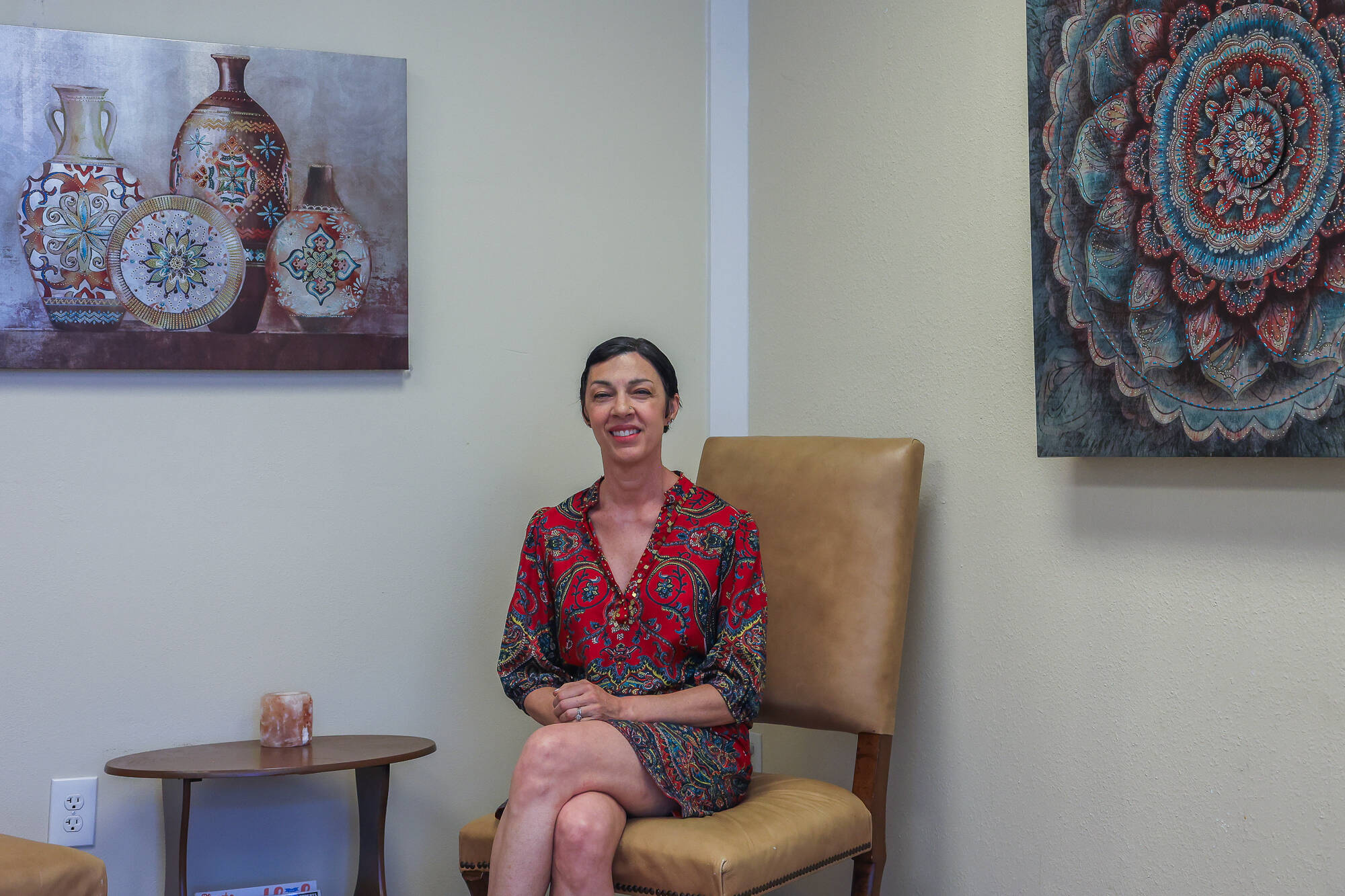On your first visit with a hypnotherapist on South Whidbey, you will step onto a colorful rug in a cozy office. Upon the walls hang tapestries and images of the natural world. Pillows fill the room’s corners.
In the back room sits a yellow recliner that hypnotherapist Jenna Alexander dubbed the “happy chair.” Behind it is a photo of the trademark dewdrop falling from a leaf.
The session starts with dialogue. Alexander learns your goals and drafts a path to take you there.
“We work with emotions,” she said. “It’s very emotional, and we start to change some thoughts and belief patterns.”
Like a guided meditation, Alexander puts you in a relaxed state of heightened suggestibility. Distractions dissolve away from a singular focus, which begins to change over time with emotional guidance.
Dewdrop Hypnotherapy opened in Freeland about a decade ago. Alexander’s study began after she became very sick, she said. Through self-hypnosis, she was able to feel better emotionally toward how she felt physically.
“This was stuff I’d always gravitated toward, visualization and manifesting and imagining and talking to myself in certain ways and things like that,” she said. “I understood it on a deep level and have found it to be super effective healing modality for people.”
When patients sit in the happy chair, fresh ideas and feelings emerge like dewdrops in a new morning, she said.
Hypnosis is not like how it’s commonly portrayed in movies, she said. She cannot control her patients, and it’s impossible to be hypnotized against your will.
“It’s not even me doing it to you,” she said. “It’s you allowing yourself.”
Alexander said the portrayal of a brainwashed-like state in movies is unfortunate. It holds people back from understanding the power of the mind to take charge of their feelings and their life.
Unlike stage hypnosis, hypnotherapy is a gentle and subtle process, she said. Patients fall into a relaxed state which removes the critical mind blocking the subconscious. At this point, they can access a deeper part of themselves. Through Alexander’s guidance, they visualize and feel, visiting information and memories in a new way.
The experience feels like a flow state, being lost in a task or a good book. Many liken hypnosis to placebo, though Alexander said that placebo also holds immense power.
“Your beliefs are a huge part of your makeup,” she said. “What you tend to believe and buy into and embody and walk and speak and behave like, that’s in your reality. When you change your belief, you will begin to change your reality to some level.”
Reasons for seeking hypnotherapy run the gamut, she said. Patients want to resolve fears, change bad habits or explore their subconscious.
“It really helps anxiety and changes your neural pathways and helps you think differently, believe differently, feel differently,” she said. “It’s pretty powerful stuff.”
Some people start with a little resistance, she said, which fades after a couple of sessions.
In her career, Alexander said she has seen some incredible transformations. People who have smoked three packs of cigarettes a day for 50 years quitting, people who are depressed and withdrawn coming back to enjoying life.
“You name it,” she said. “Habits have been broken. Patterns change all the time in here.”
To drift into the world of hypnotherapy yourself, visit dewdrophypno.com.



